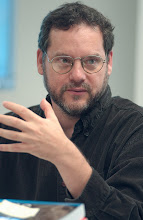Introducing Dr. Vincent Harding

On October 14, Antioch University New England, Keene State College, Mothers Uniting, and the City of Keene Martin Luther King/Jonathan Daniels Committee hosted a community conversation led by Dr. Vincent Harding--a renowned social movement activist, scholar and liberation theologian who worked closely with Dr. Martin Luther King in the 1960s. It was my honor to introduce Dr. Harding to over 250 local people. My remarks are below.
Good evening, friends. My name is Steve Chase and I direct Antioch’s environmental studies masters program in Advocacy for Social Justice and Sustainability.
It is a great honor for me to be able to introduce Dr. Vincent Harding to you tonight. Dr. Harding is a long-time activist, historian, and theologian and he has personally inspired me as an activist, a scholar, and a person of faith ever since I first read his book There Is A River: The Black Struggle For Freedom in America. That was back in the mid-1980s. Soon after, I learned about Harding’s close association with Martin Luther King, the American leader who I imprinted on most as a child. This connection between King and Harding leads me to a story I want to tell you tonight.
In the mid-1980s, a coalition of churches, civic groups, and small business leaders organized a campaign in Seattle to honor Martin Luther King. Their specific goal was to get their city council to change the name of the main street running through Seattle’s predominantly black neighborhood from the “Empire Way” to the “Martin Luther King, Jr. Way.” After a few months, they got the city council to agree.
The night after the vote, the neighborhood organizers invited community members to a large Baptist church for a victory celebration. That night, Vincent Harding spoke to the community. He urged everyone there to fully embrace what the community had accomplished symbolically--and to make it real in our daily lives. As he said, “We have worked together to change the road we travel from the Empire Way to Martin’s way.” Isn’t this the very challenge we have before us—changing the road we travel from the Empire Way to Martin’s Way?
For me, the full meaning of “Martin’s Way” is made most clear if we turn back to Martin Luther King’s April 4, 1967 “Beyond Vietnam” speech at New York City’s Riverside Church. King co-wrote this speech with Vincent Harding, who had long been urging King to take a public stand against the US’s criminal war against the people of Vietnam.
In that groundbreaking speech, King (and Harding as the main speech writer) called on all of us to turn away from our nation’s complicity and passive support of the three core social sins of empire: racism, militarism, and extreme materialism. Today, we could add to this list our society’s destructive addiction to oil, which has now led our nation to become the single biggest purveyor of both global warring and global warming.
We clearly have much work to do if we are to Dream a New America that follows “Martin’s Way” instead of the “Empire Way.” We have much work to do to create an America where “we the people” engage in a “nonviolent revolution of values,” where we establish liberty and justice for all, where we shrink our ecological footprint and stop impoverishing or occupying other countries in order to steal their resources. Where we create the Beloved Community so often invoked by King or “a more perfect union,” the phrase that runs through Dr. Vincent Harding’s more recent work. Where we are no longer afraid to put on the table of public discussion the “real issue” we need to address, which as King put it is the “radical reconstruction of American society itself” so that we live in a world that is ecologically sustainable, socially just, and spiritually fulfilling.
This deep vision and agenda for social change articulated by King toward the end of his life and by Harding in all the decades since is what following “Martin’s Way” actually means to me. If you don’t remember this aspect of King’s legacy, I strongly encourage you to read Dr. Harding’s book, Martin Luther King: The Inconvenient Hero, which is the best book on King I’ve read.
Yet, tonight we have an opportunity even sweeter than reading a great book about Dreaming A New America in the privacy of our homes. Tonight, we get to engage as a community with one of our most insightful and compassionate movement elders. This is a precious and rare opportunity not to be missed.
Sisters and brothers, it is my deep honor to welcome Dr. Vincent Harding to speak with you tonight.

